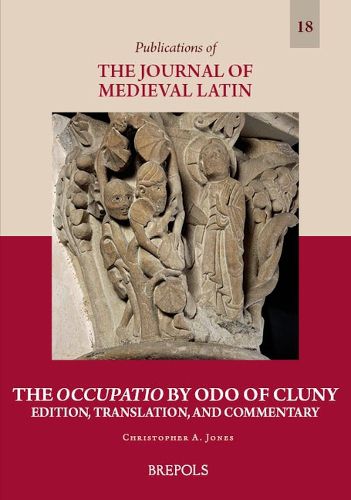Readings Newsletter
Become a Readings Member to make your shopping experience even easier.
Sign in or sign up for free!
You’re not far away from qualifying for FREE standard shipping within Australia
You’ve qualified for FREE standard shipping within Australia
The cart is loading…






The Occupatio is one of the longest yet least-known Latin poems surviving from the earlier Middle Ages. Composed by the famous abbot Odo of Cluny (d. 942), the work retells the story of humanity's fall and redemption as a series of episodes intended to help monastic readers focus their wandering thoughts. In pursuing those aims, the poem represents a uniquely ambitious attempt to reconcile the intellectual heritage of the late Carolingian Church with the spirituality of ascetic reform movements emergent in the tenth century. This book offers an improved edition of Odo's Latin text together with its manuscript glosses, as well as a Modern English translation and detailed commentary. Introductory chapters offer helpful orientation to the character of the poem, its major themes, sources, language, style, and transmission.
$9.00 standard shipping within Australia
FREE standard shipping within Australia for orders over $100.00
Express & International shipping calculated at checkout
The Occupatio is one of the longest yet least-known Latin poems surviving from the earlier Middle Ages. Composed by the famous abbot Odo of Cluny (d. 942), the work retells the story of humanity's fall and redemption as a series of episodes intended to help monastic readers focus their wandering thoughts. In pursuing those aims, the poem represents a uniquely ambitious attempt to reconcile the intellectual heritage of the late Carolingian Church with the spirituality of ascetic reform movements emergent in the tenth century. This book offers an improved edition of Odo's Latin text together with its manuscript glosses, as well as a Modern English translation and detailed commentary. Introductory chapters offer helpful orientation to the character of the poem, its major themes, sources, language, style, and transmission.